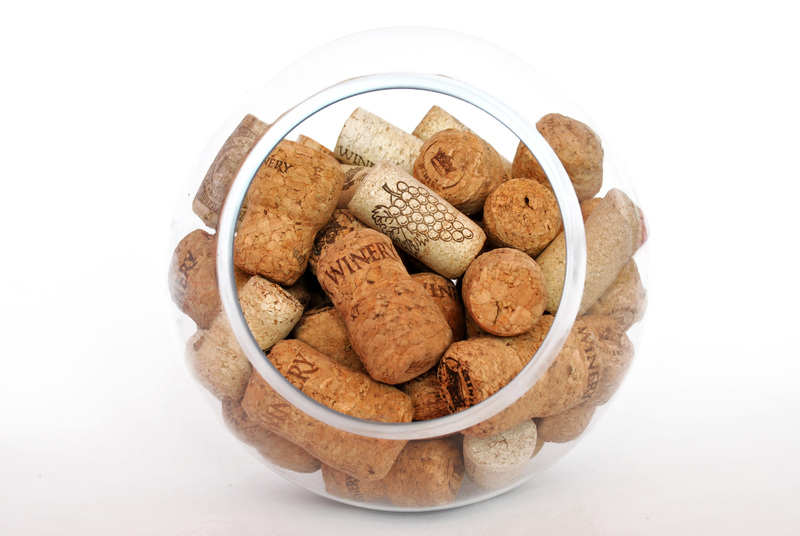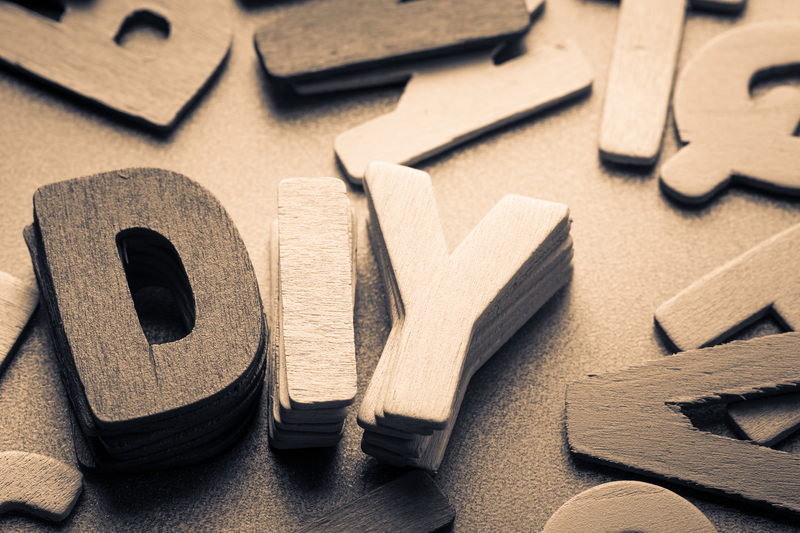Experience Relaxation: The Stress-Relief of De-cluttering
In today's fast-paced society, stress infiltrates many aspects of our daily lives. Whether it's the pressures of work, looming deadlines, or the continuous barrage of digital information, our minds rarely experience true peace. However, one effective and often overlooked method to alleviate stress and promote relaxation is the simple act of de-cluttering. Besides providing physical order, organizing your environment can bring profound mental clarity and emotional well-being. In this detailed guide, discover how the process of de-cluttering can transform your living space--and your mental state--to foster relaxation and holistic health.

Understanding the Psychological Connection between Clutter and Stress
What is clutter? Clutter refers to an accumulation of items--be it paperwork, knickknacks, unused gadgets, or clothing--that creates disorder and chaos in your environment. Although a few scattered items may seem harmless, research has consistently shown that excessive clutter directly correlates with higher levels of psychological stress.
The Science Behind Clutter and Stress
Multiple studies, including ones conducted by the UCLA Center on Everyday Lives and Families, concluded that people surrounded by clutter tend to experience higher levels of the stress hormone cortisol. The constant visual reminders of disorganization overload our senses and can even trigger anxiety. Having a cluttered home often makes it difficult to relax--even after a long, exhausting day.
- Decreased Focus: Clutter competes for your attention, making concentration and productivity harder to achieve.
- Increased Anxiety: Visual chaos can evoke feelings of worry, embarrassment, and helplessness.
- Poor Sleep: A messy environment is often linked to disrupted sleep patterns and insomnia.
- Reduced Relaxation: An untidy space can stifle relaxation and hinder your ability to unwind.
How De-cluttering Leads to Stress Relief
De-cluttering does more than improve aesthetics; it rearranges our mental state and restores a sense of control. Here's how the process helps:
1. Cultivates Mindfulness and Presence
Sorting through your possessions requires you to focus on the present moment--a core principle of mindfulness. Making deliberate choices about what to keep or discard encourages self-reflection and helps you develop a clearer perspective.
- Intentional Living: Each decluttering session allows you to reconsider which items align with your current needs and values.
- Letting Go of the Past: Releasing items attached to old memories offers an opportunity to move forward emotionally.
2. Boosts Motivation through Immediate Results
One of the most rewarding aspects of de-cluttering is instant gratification. Seeing a neat and orderly space immediately after decluttering instills a sense of accomplishment and boosts motivation to tackle other tasks--fueling a positive feedback loop.
3. Enhances Relaxation by Simplifying Life
The fewer items in your environment, the fewer distractions your brain has to filter. Mental space is freed, leading to a calmer and more restful atmosphere. When stressors are removed from sight, relaxation becomes more attainable.
- Simplified Environment: Less visual clutter equals less cognitive overload.
- Easy Maintenance: Fewer items make cleaning and organization effortless, reducing daily stressors.
4. Fosters a Sense of Control and Autonomy
Clutter can leave you feeling powerless amidst the chaos. Taking the time to organize your surroundings restores a sense of autonomy, which is essential for mental well-being. You regain the reins of your routine, boosting confidence and personal satisfaction.
Practical Steps to Start Your De-cluttering Journey
If the prospect of decluttering feels overwhelming, it helps to break the process into manageable steps. Here's a comprehensive plan for embarking on your own relaxation-inducing decluttering journey:
1. Set Clear Goals
Before diving in, visualize what you want to achieve. Do you want a calm bedroom? A productive home office? Establishing your goals ahead of time guides your efforts and keeps you motivated.
2. Tackle One Space at a Time
Attempting to de-clutter your entire living space in a single session can be daunting. Instead, focus on one area at a time:
- The kitchen counter
- Your work desk
- Hallway closets
- Bathroom cabinet
3. Sort and Categorize
Use the tried-and-tested method of sorting items into categories:
- Keep: Items you use regularly or that bring you joy.
- Donate/Sell: Items in good condition but no longer needed.
- Recycle/Trash: Broken or unusable items.
4. Organize What Remains
Once you've weeded out unnecessary items, find a designated place for everything. Storage boxes, drawer organizers, and shelves can help maintain long-term order. Proper labeling makes finding things easier and prevents the re-accumulation of clutter.
5. Maintain Your Clutter-Free Space
Consistency is key for lasting results. Set aside a few minutes each day or week for upkeep. Adopt policies such as "one in, one out" (for every new item brought in, another must go) to prevent backsliding.
Emotional Challenges in the De-cluttering Process
While the relaxation benefits of organizing are clear, the process can also bring up complex emotions:
- Sentimental Attachments: Parting with keepsakes may trigger nostalgia or guilt.
- Fear of Loss: Worrying you might need an item later is common but often unfounded.
- Indecision: Difficulty making choices can slow progress.
Be gentle with yourself and understand that these feelings are natural. Try tackling the easiest items first to build momentum and confidence, gradually working your way to the more sentimental or challenging possessions.
Decluttering Variations: Beyond the Physical
Decluttering for relaxation doesn't stop at physical belongings. Other aspects of your life may benefit from streamlining as well:
Digital Decluttering
A crowded inbox, dozens of open browser tabs, and cluttered desktop files can be just as stressful as a messy room. Dedicate time to:
- Archive or delete unnecessary emails.
- Organize files into folders.
- Unsubscribe from newsletters and notifications you no longer find valuable.
- Delete unused apps from your devices.
Schedule Simplification
Our calendars can become just as bloated as our closets. To foster true relaxation, consider:
- Prioritizing tasks and commitments.
- Reserving downtime for yourself.
- Saying no to obligations that don't serve your well-being.
Mental and Emotional Decluttering
Overthinking, holding onto grudges, and ruminating on the past are mental forms of clutter. Techniques such as mindfulness, journaling, and practicing gratitude can help clear mental space and enhance relaxation.
Unexpected Benefits of a Clutter-Free Life
While stress relief and relaxation are the most prominent gains from decluttering, there are additional benefits worth mentioning:
- Improved Health: Fewer dust-collecting items lead to cleaner air and reduced allergies.
- Enhanced Creativity: A tidy space stimulates creativity and problem-solving.
- Stronger Relationships: A welcoming environment encourages social interaction and reduces household tension.
Top De-cluttering Techniques for Enhanced Relaxation
If you want to maximize the relaxation benefits of de-cluttering, consider experimenting with these popular methods:
The KonMari Method
Developed by Marie Kondo, this approach emphasizes keeping only those items that "spark joy." Going category by category (clothes, books, etc.), participants learn to part with unnecessary possessions, cultivating gratitude and lightness.
Minimalism
Minimalism isn't about having nothing; it's about having only what serves a purpose or brings happiness. Minimalist living leads to fewer distractions and increased time and energy for meaningful pursuits.
The Four-Box Method
Label four boxes: Keep, Donate, Toss, and Relocate. As you move through your space, assign each item to a box. This technique promotes systematic progress and organization.
The 20/20 Rule
If you're undecided about an object, ask whether you could replace it in under 20 minutes for under $20. This guideline helps reduce the "just in case" clutter.

Frequently Asked Questions about Decluttering and Relaxation
-
Q: How often should I de-clutter for optimal relaxation?
A: Small, regular de-cluttering sessions are more effective than infrequent marathons. A weekly or monthly routine is ideal for most people. -
Q: Can de-cluttering really reduce my anxiety levels?
A: Yes! Numerous studies have shown a direct link between an organized environment and lower stress and anxiety. -
Q: What should I do with items I can't decide to keep or discard?
A: Place them in a "maybe" box. If you don't reach for them in the next three to six months, you likely don't need them.
Conclusion: Embrace De-cluttering as a Pathway to Relaxation
Clutter is more than a physical inconvenience--it's a major impediment to relaxation and peace of mind. By embracing decluttering as a regular practice, you not only organize your surroundings but also tend to your emotional and mental health. A clutter-free environment invites tranquility, focus, and joy, making your home a true sanctuary from the stresses of the outside world.
Start your de-cluttering journey today, and feel the profound stress relief and empowerment that comes with a well-ordered life. In the quest for relaxation, sometimes less truly is more.